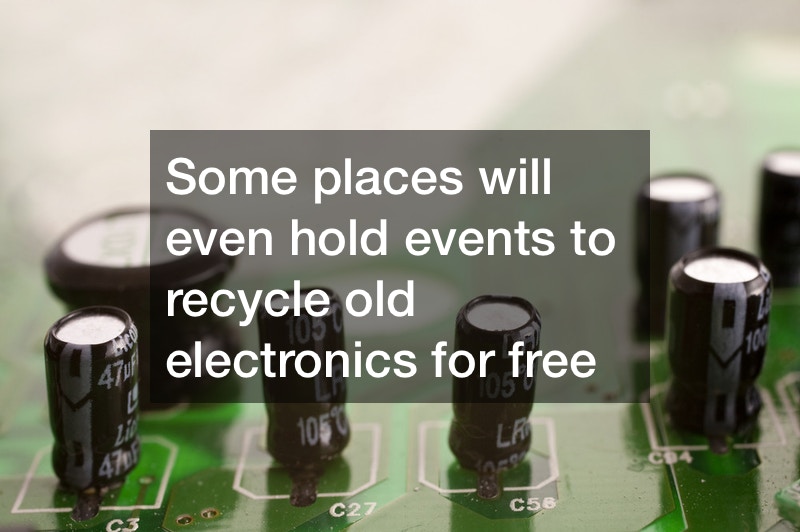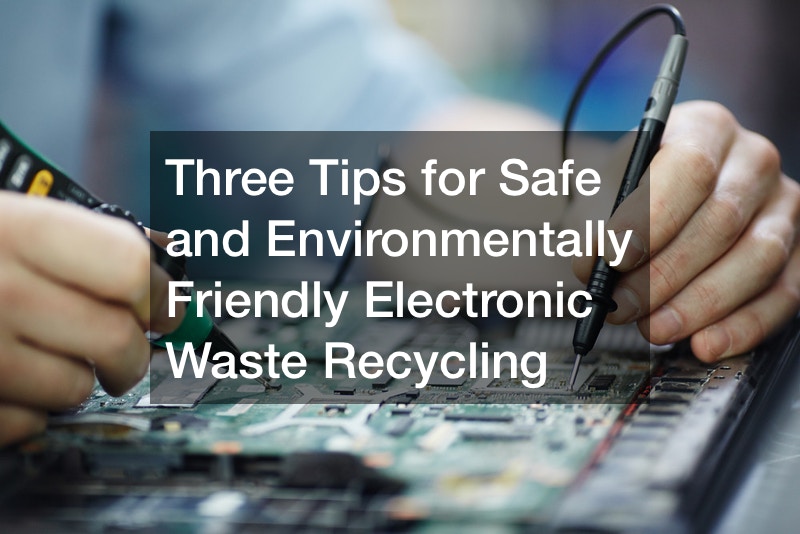
Electronic waste is a significant pollution issue in today’s world. When you get rid of an electronic appliance or cell phone, you need to worry about the batteries and other components inside.
These contain electronic and hazardous waste that can leech into the world’s natural resources. This can make people very sick. So, when you’re getting rid of an old phone, make sure you don’t just toss it into the trash.
Instead, find electronic waste recycling options near you that will take care of it safely.
To find electronic waste and recycling options in your community, you can talk to your local government or non-profit organizations. Many of them will be able to direct you toward resources that will take care of your electronic waste.
Some places will even hold events to recycle old electronics for free. While disposing of your electronics safely might take a few extra steps to do, it is worth it.

It keeps your old phone out of the landfill and prevents any hazardous waste from getting into the ground or water.

Did you know that electronic waste, or “e-waste” is becoming a serious pollutant throughout the world? Just as plastic waste has become a major pollutant in the past two decades, increasing by 10% in that time, electronic waste is also a growing problem as we figure out how to dispose of our old computers, cell phones, televisions, and other items. Today, pollution on land and in water affects millions of people and kills many more, and e-waste is another contributor to the problem.
To make that issue even worse, many electronic waste recycling services have sprung up in the past decade, but the items in questions aren’t usually properly recycled. Consumers who recycle with these programs are told that their electronics will be broken down and reused, but this isn’t usually the case. Instead, they wind up on other continents, usually in developing countries, where those living in poverty sift through the electronics for precious metals that can be sold once again. The exposure to metals and other materials can cause health problems in those who work around electronic waste. Additionally, any leftover items are often dumped in public places, creating more pollution.
In order to ensure proper electronic waste recycling, there are many things you can do to ensure that your old items won’t contribute to pollution. Additionally, there are other issues to be aware of when it comes to recycling electronics, such as identity theft. If you’re in the process of going green and you’re getting rid of electronics you no longer need, here are some tips for completing this process in a safe and environmentally friendly manner:
1. Find out what your recycling center does with e-waste. Recycling centers should be clear with where the waste ends up. If they aren’t transparent about their electronic waste disposal, find a program that is.
2. Donating is great, too. See if there are any electronics recycling programs that donate or reuse electronics in any way. Donating is a good way to ensure that products are given to someone who could use them. Many groups also collect cell phones for shelters and other charities.
3. When in doubt, protect yourself against identity theft. Whether you’re recycling or donating, it’s especially important to ensure that the information left over on your computer isn’t used to steal your identity or take money from your bank account. Most people don’t know that it’s actually possible to get information off of a hard drive that’s been “wiped.” The best method for preventing identity theft is to destroy the computer’s hard drive.
Have more questions about what you can do to ensure proper electronic waste recycling? Find a qualified electronic disposal and recycling company in your area. You can also leave a comment for more suggestions for combating the issue of e-waste.
